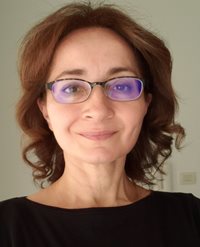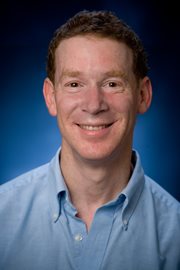Thinking About Thinking

a Discovery Core Experience
May be taken as either BCORE 116 (Natural Sciences) or BCORE 115 (Social Sciences)
About This Course
It seems that human society is on the cusp of a revolution in both our understanding of human thought and our ability to build machines that can match, and maybe exceed, ourselves. But is that really true? How did computers and software arrive at this capability? In this course, we will explore the similarities and differences between computer processing and human cognition, forming a learning community that combines computer science and neuroscience for a deeper understanding of both. For decades, these disciplines have informed each other, with early computers inspiring models of how brain cells function to ultimately produce thoughts and behaviors, and now with neuroscience influencing the development of artificial intelligence. Example topics where computing and neuroscience intersect include our understanding and representation of: sensory systems and perception, motor systems and robotics, human and computer languages, learning and memory, the definition of intelligence, and emotion.
We will then combine these two perspectives to consider questions such as what we mean when we say that a person (or animal) “thinks”, or is “self-aware”, and whether it is possible for a machine to exhibit these characteristics. Even if we can’t definitively answer these big questions, we will gain an appreciation of the complexity of the brain and the questions that computer scientists and neuroscientists address in their work. Students will learn basic programming concepts and the scientific method.
Why Should I Take This Course?
Because it is cool! We have brains, everyone we know has brains, our pets have brains, and all the animals we see have brains (or at least nervous systems). And yet our understanding of how brains give rise to minds is extremely limited. We work and play with computers every day, directly or indirectly, and we read about (or experience) computers being “intelligent” (except when they’re not). High powered computers can cycle through over 100 billion password guesses in 1 second, yet cutting edge robots still have mixed success opening door handles. In this interdisciplinary exploration we can tap into some of humanity’s deepest questions about minds and the electrical energy that creates our reality.
What Will I Study?
We will examine how the brain and the computer perceive, learn, and remember. We will learn basic neuroscience and basic neuroscience. We will ask questions like, “We know a brain can produce a mind. Can a mind create a computer that has its own mind?”
Dr. Salwa Al-Noori (She/Her/Hers)
School of Science, Technology, Engineering & Mathematics

About Dr. Al-Noori, PhD
Dr. Al-Noori completed her Ph.D. in Neuroscience at the Baylor College of Medicine in Houston, Texas. She conducted multiple postdoctoral training fellowships in Seattle, Washington. As a faculty member at the University of Washington, Dr. Al-Noori engages in teaching, research, service, and mentoring roles. In her teaching and mentoring, she aims to foster contexts that support student-centered inquiry-based collaborative learning. By incorporating interdisciplinary, multi-perspective approaches, she strives to engage students in ways that make learning accessible and advance diversity, equity, inclusion, and justice in STEM education. She has been a Fulbright Scholar at the Hashemite University in Jordan. Among her interests is the internationalization of curriculum in higher education, and one of the ways Dr. Al-Noori integrates this in her teaching is to engage students in Collaborative Online International Learning (COIL) using virtual exchange with international partners to promote globalized perspectives and pedagogical practices that focus on promoting culturally responsive and culturally relevant teaching.
Contact
Location: UWBB-107H-2
Phone: 425-352-3514
Email: saan@uw.edu
Dr. Michael Stiber, Ph.D. (He/Him/His)
School of Science, Technology, Engineering & Mathematics

About Dr. Stiber
Dr. Stiber earned his Ph.D. in Computer Science from UCLA. Before coming to UWB, he was an Assistant Professor at the Hong Kong University of Science & Technology and a Research Assistant Professor at the University of California, Berkeley.
He has also been a Visiting Associate Professor at the University of Florida and a Fulbright Scholar in the Institute of Physiology of the Czech Academy of Sciences.
His research interests include: computational neuroscience, biocomputing, neuroinformatics, simulation and analysis of graph-based systems, neural networks, nonlinear dynamics, and complex systems.
Contact
Location:UW1-340
Phone:425-352-5280
Email: stiber@uw.edu
